
Ruwi: The Heartbeat of Muscat
Ruwi, often referred to as the commercial and business hub of Muscat, offers a unique blend of modernity and tradition. As you stroll through its bustling streets, you'll discover a melting pot of cultures, with a myriad of shops, restaurants, and businesses catering to both locals and tourists alike. One of the most striking features of Ruwi is its vibrant souk. This traditional market is a treasure trove of Omani handicrafts, spices, and textiles. It's a perfect place to find unique souvenirs and experience the local way of life. The aroma of frankincense and the sight of colorful fabrics will transport you to a different world. Ruwi is also home to some of Muscat's most important landmarks. The Sultan Qaboos Grand Mosque, with its stunning architecture and serene ambiance, is a must-visit. Another notable site is the Ruwi Clock Tower, a symbol of the neighborhood's significance. For those interested in history, the National Museum of Oman provides a comprehensive overview of the country's rich heritage. Food lovers will be delighted by the diverse culinary offerings in Ruwi. From traditional Omani dishes to international cuisines, the neighborhood has something for every palate. Don't miss out on trying Omani halwa, a sweet treat that is sure to leave a lasting impression. Ruwi's strategic location makes it an ideal base for exploring the rest of Muscat. With its excellent public transport links, you can easily access other popular attractions, such as the Royal Opera House, the Mutrah Corniche, and the Al Jalali and Al Mirani forts. Whether you're a history buff, a shopaholic, or a foodie, Ruwi has something to offer every traveler.
Local tips in Ruwi
- Visit the Ruwi Souk early in the morning to avoid crowds and get the best deals on local handicrafts.
- Dress modestly when visiting the Sultan Qaboos Grand Mosque and be respectful of local customs.
- Use public transport or hire a taxi to navigate Ruwi, as parking can be challenging in busy areas.
- Try traditional Omani dishes at local eateries for an authentic culinary experience.
- Carry some cash, as not all shops and restaurants accept credit cards.
Ruwi: The Heartbeat of Muscat
Ruwi, often referred to as the commercial and business hub of Muscat, offers a unique blend of modernity and tradition. As you stroll through its bustling streets, you'll discover a melting pot of cultures, with a myriad of shops, restaurants, and businesses catering to both locals and tourists alike. One of the most striking features of Ruwi is its vibrant souk. This traditional market is a treasure trove of Omani handicrafts, spices, and textiles. It's a perfect place to find unique souvenirs and experience the local way of life. The aroma of frankincense and the sight of colorful fabrics will transport you to a different world. Ruwi is also home to some of Muscat's most important landmarks. The Sultan Qaboos Grand Mosque, with its stunning architecture and serene ambiance, is a must-visit. Another notable site is the Ruwi Clock Tower, a symbol of the neighborhood's significance. For those interested in history, the National Museum of Oman provides a comprehensive overview of the country's rich heritage. Food lovers will be delighted by the diverse culinary offerings in Ruwi. From traditional Omani dishes to international cuisines, the neighborhood has something for every palate. Don't miss out on trying Omani halwa, a sweet treat that is sure to leave a lasting impression. Ruwi's strategic location makes it an ideal base for exploring the rest of Muscat. With its excellent public transport links, you can easily access other popular attractions, such as the Royal Opera House, the Mutrah Corniche, and the Al Jalali and Al Mirani forts. Whether you're a history buff, a shopaholic, or a foodie, Ruwi has something to offer every traveler.
Iconic landmarks you can’t miss
Sri Krishna Temple, Muscat, Oman
Discover the unique cultural blend at Sri Krishna Temple, the only Hindu temple in Oman, a serene haven for spirituality in Muscat.
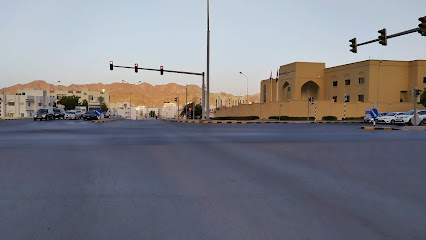
Mutrah Fort
Explore the historical Mutrah Fort in Muscat, a stunning fortress showcasing Oman's heritage and offering breathtaking views of the Gulf.
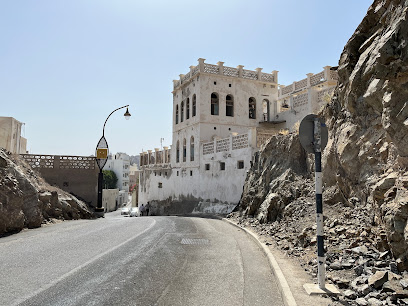
Sultan Qaboos Mosque Ruwi
Discover the breathtaking beauty of Sultan Qaboos Mosque, a cultural gem in Muscat, showcasing exquisite Islamic architecture and serene gardens.
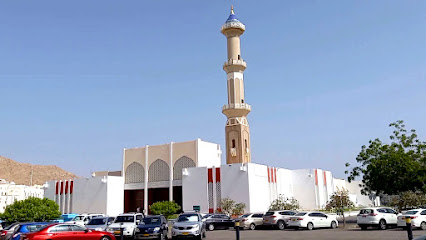
Riyam Censer
Discover the Riyam Censer in Muscat, a stunning monument symbolizing Oman’s rich heritage and offering breathtaking views of the city and coastline.
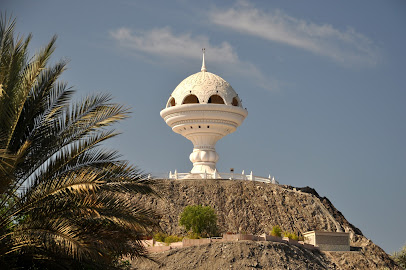
Ruwi Clock Tower
Discover the Ruwi Clock Tower, a stunning landmark in Muscat blending rich history and modern beauty, perfect for every tourist's itinerary.
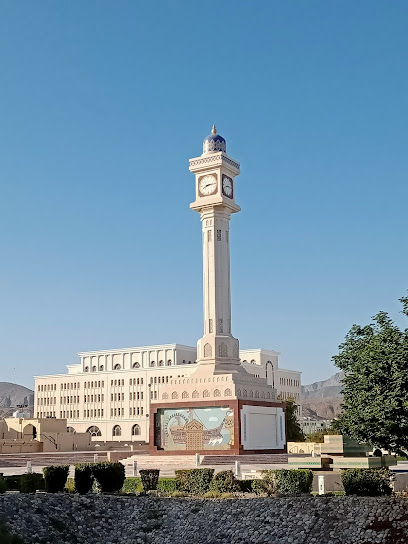
Park
Discover the lush oasis in Muscat, where vibrant gardens and serene walking paths invite you to relax and unwind amidst nature's beauty.
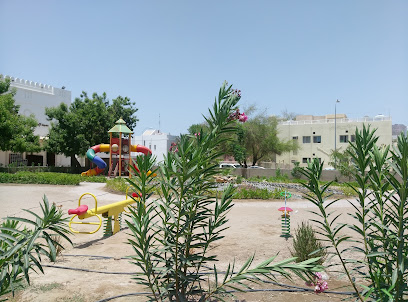
Mutrah Corniche
Explore the stunning Mutrah Corniche in Muscat, Oman, a perfect blend of scenic beauty, local culture, and delightful cuisine along the waterfront.
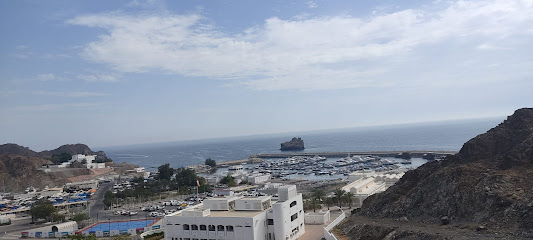
Ruwi full view
Experience breathtaking views and cultural richness at Ruwi Full View, your gateway to the stunning skyline of Muscat.
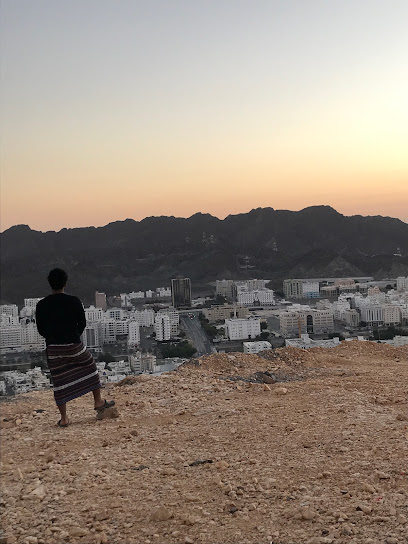
Teapot roundabout -ruwi
Discover the charm of the Teapot Roundabout in Ruwi, an iconic symbol of Omani culture and hospitality, perfect for a memorable visit in Muscat.
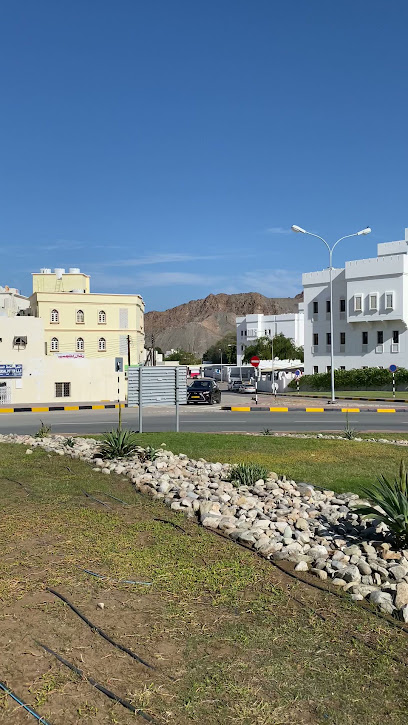
Wadi View Point
Discover the enchanting landscapes of Wadi View Point in Muscat, Oman – a tranquil retreat showcasing stunning panoramic views and rich natural beauty.
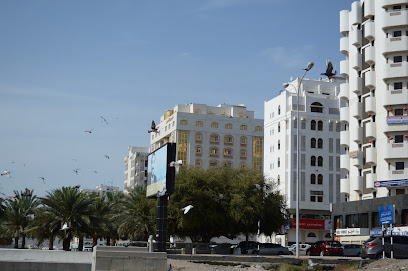
روي
Discover Ruwi, the vibrant corporate heart of Muscat, where modernity meets Omani tradition in a bustling urban setting.
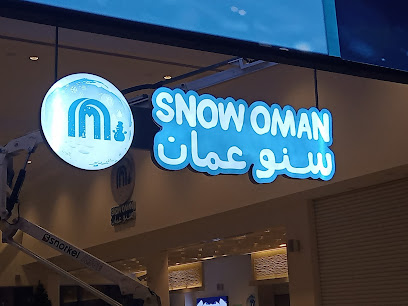
Unmissable attractions to see
Mutrah Souq
Discover the vibrant culture and rich history of Muscat at Mutrah Souq, a bustling market filled with treasures and authentic Omani experiences.
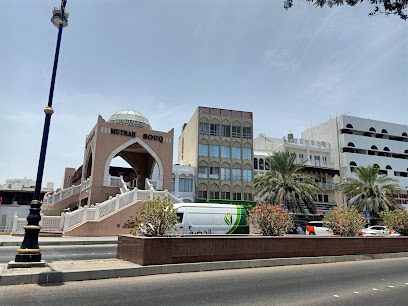
Al Alam Palace
Discover the stunning architecture and royal heritage at Al Alam Palace, a must-visit attraction in Muscat that showcases Oman's cultural richness.
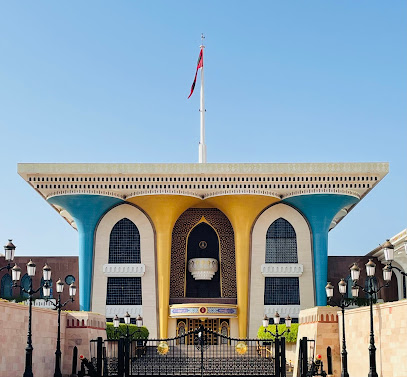
Riyam Park حديقة ريام
Discover Riyam Park, a tranquil green escape in Muscat, perfect for relaxation, family fun, and stunning views of the city and coastline.
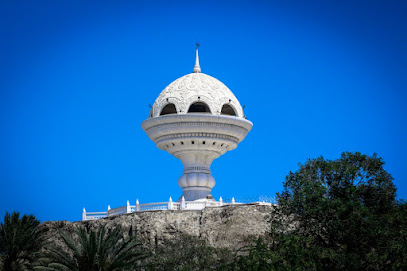
Riyam Censer
Discover the beauty and cultural significance of Riyam Censer, an iconic monument in Muscat that offers breathtaking views and a serene park.
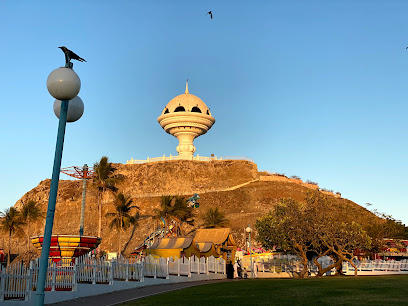
Ruwi Clock Tower
Explore the Ruwi Clock Tower, an emblem of Muscat's history and culture, where tradition meets modernity in a vibrant urban setting.
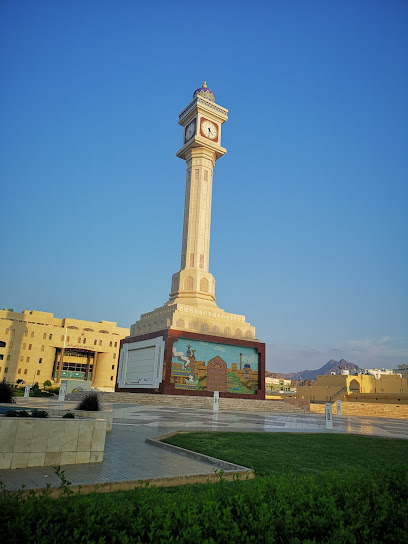
Teapot roundabout -ruwi
Discover the Teapot Roundabout in Muscat, a charming landmark symbolizing Omani hospitality and artistry amidst a vibrant urban setting.
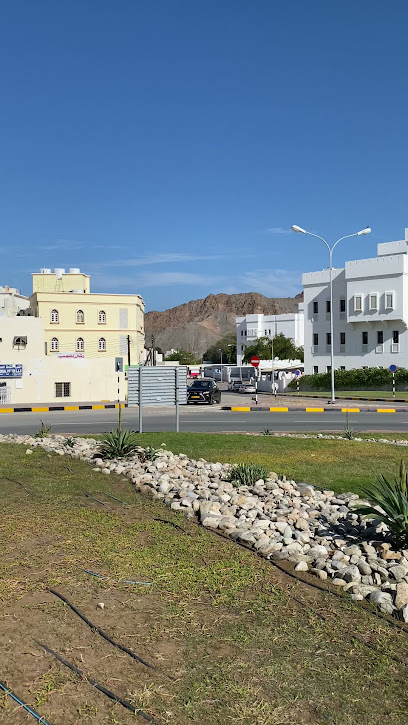
Wadi View Point
Experience the breathtaking views and serene beauty at Wadi View Point, a must-visit attraction in Muscat, Oman, perfect for nature lovers and photographers.
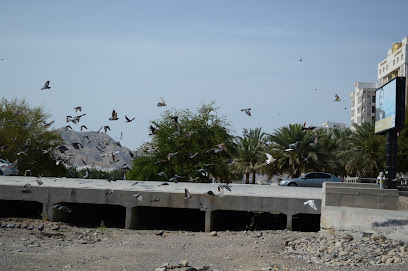
Essential places to dine
Kamat Restaurant مطعم كامات النباتي
Discover the flavors of India at Kamat Restaurant in Muscat – A paradise for vegetarian cuisine lovers!
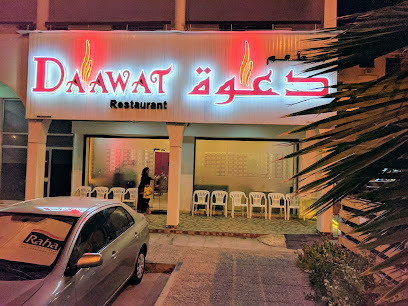
Kesar Restaurant & Sweet, CBD
Discover the rich flavors of India at Kesar Restaurant & Sweet in CBD Muscat—your go-to spot for delicious vegetarian cuisine.
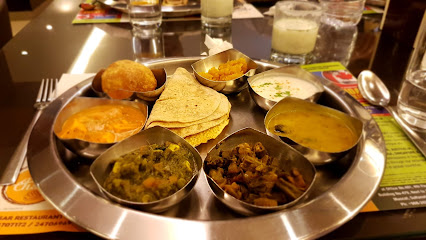
Al Hawas Restaurant
Discover the authentic flavors of Oman at Al Hawas Restaurant in Ruwi - where tradition meets taste in every dish.
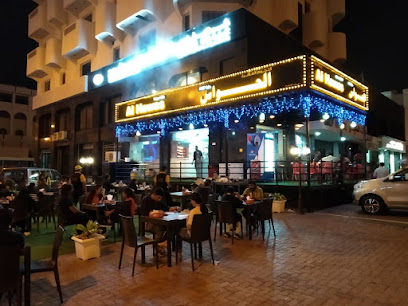
Copper Chimney
Experience the best of Indian and Chinese cuisine at Copper Chimney in Muscat – where every dish tells a story.
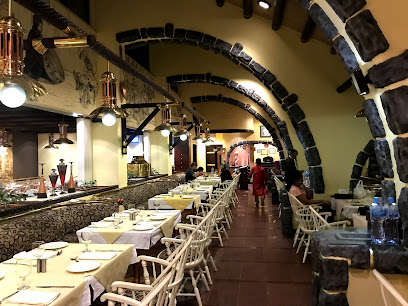
Al Haikal Restaurant
Discover authentic Pakistani flavors at Al Haikal Restaurant in Muscat – where every meal is a celebration of culture and taste.
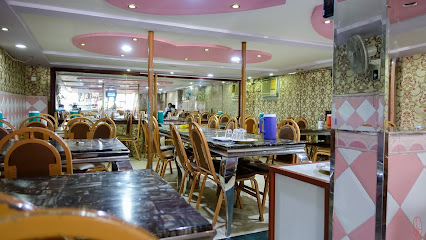
DIVINE RESTAURANT
Experience the rich flavors of Oman at Divine Restaurant in Muscat - where every meal is a celebration of taste.
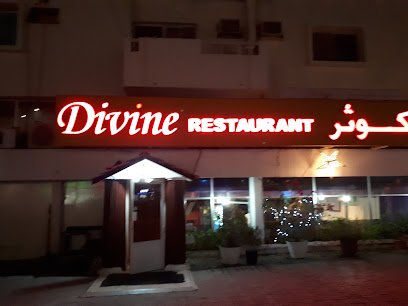
New Madras Restaurant & Cafe
Discover the rich flavors of India at New Madras Restaurant & Cafe in Muscat – where every meal is a celebration of taste.
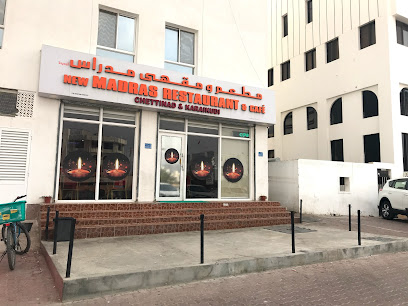
Al-Exandria Restaurant
Experience the flavors of Oman at Al-Exandria Restaurant in Muscat - where tradition meets taste.
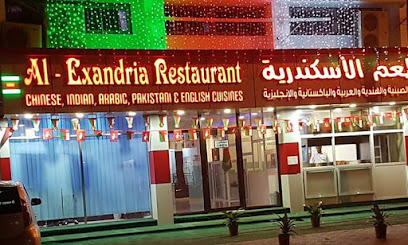
Black & White Restaurant
Experience authentic Indian flavors at Black & White Restaurant in Muscat—where every dish tells a story.
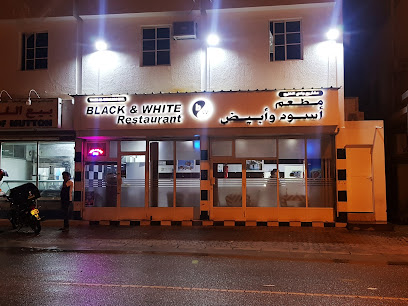
Four Squares Restaurant
Discover the vibrant flavors of India at Four Squares Restaurant in Muscat - where every meal is a delicious journey through authentic cuisine.
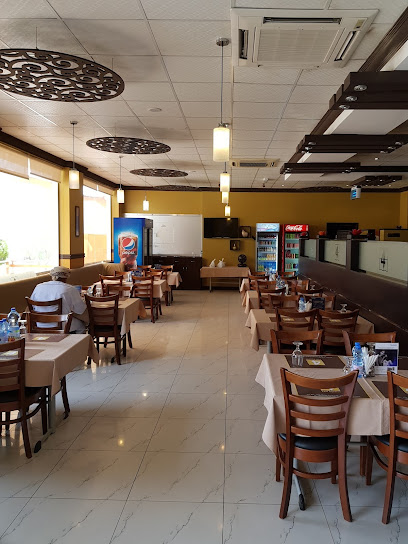
Markets, malls and hidden boutiques
R&B ار اند بي - روي
Explore R&B Fashion in Muscat for trendy clothing that blends modern style with local flair, perfect for every fashion-forward traveler.
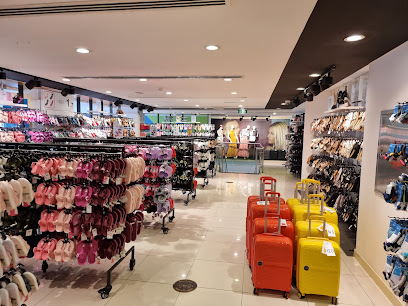
Ruwi Movers
Ruwi Movers in Muscat offers top-notch moving supplies, making your relocation smooth and hassle-free with quality products and expert assistance.
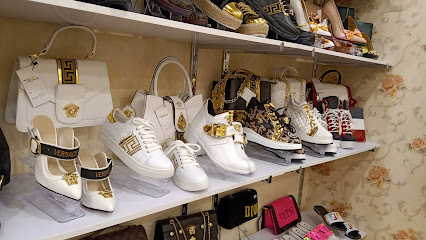
HOUSE OF CRAFTS - UNIQUE GIFTS
Explore the House of Crafts in Muscat for unique, handcrafted gifts and souvenirs that celebrate Oman's rich cultural heritage.
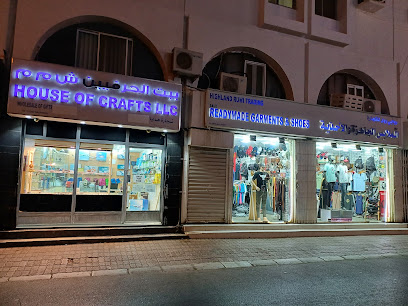
Daff 'O' Dils Designer Boutique
Explore unique women's fashion at Daff 'O' Dils Designer Boutique in Muscat - a haven for tailored dresses and stylish clothing.
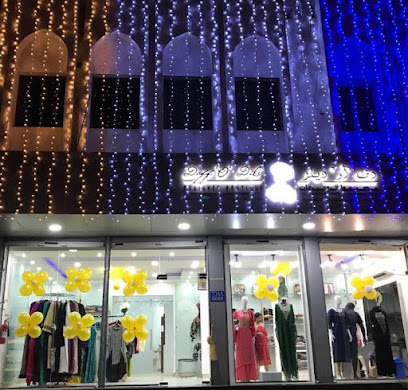
Ibin Muscat Flowers & Gifts
Explore Ibin Muscat Flowers & Gifts for unique souvenirs and floral arrangements that embody Omani culture in the heart of Muscat.
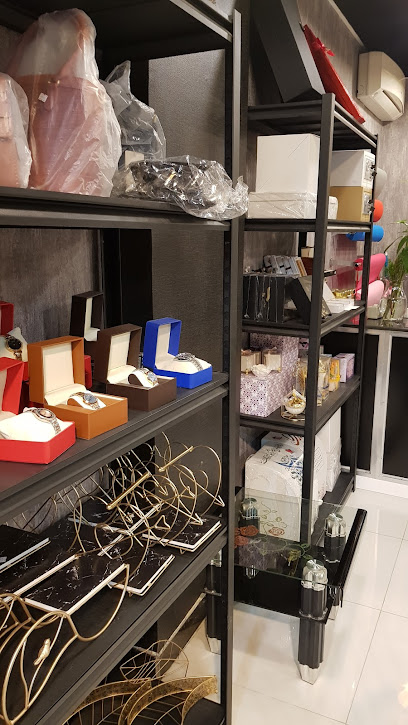
Petals Boutique
Explore Petals Boutique in Muscat for exclusive clothing and accessories that blend traditional elegance with modern style.
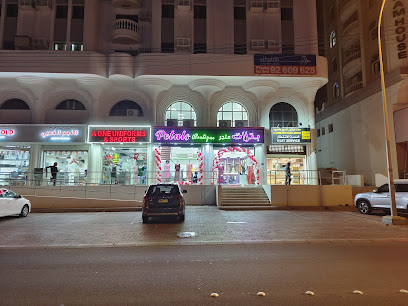
Butterfly Boutique
Discover unique women's fashion at Butterfly Boutique in Muscat, where contemporary style meets Omani tradition.
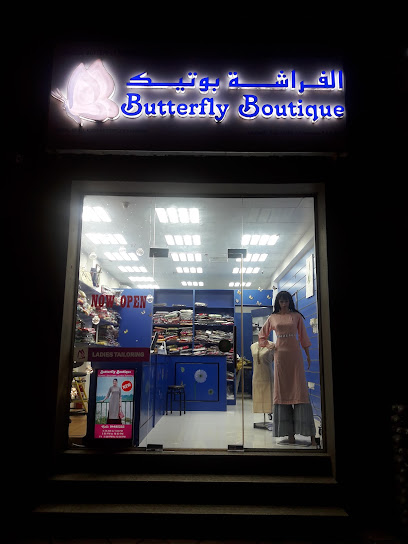
Gloriou's Chocolate Gift Items
Discover exquisite chocolates and delightful gifts at Gloriou's Chocolate Gift Items in Muscat, perfect for sweet indulgences and memorable souvenirs.
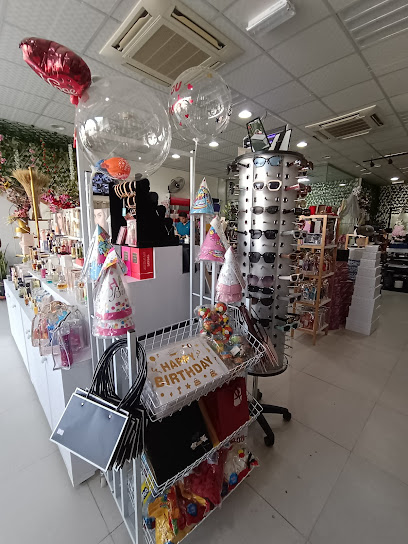
Ruqaya shop
Explore Ruqaya Shop in Muscat for exquisite gifts and authentic Omani souvenirs that capture the spirit of your travels.
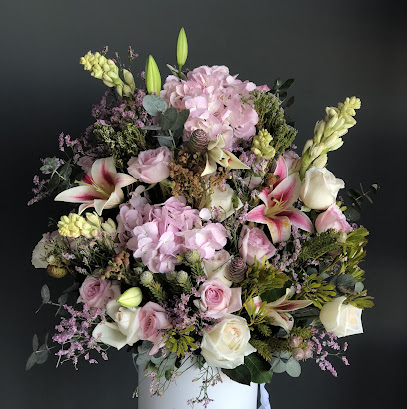
ISHAL ABAYA'S
Explore the elegance of Omani fashion at ISHAL ABAYA'S, a premier women's clothing store in Muscat's vibrant Ruwi district.
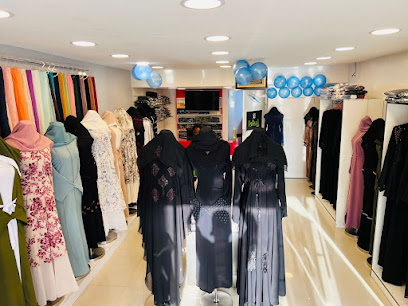
Essential bars & hidden hideouts
Rock Bottom Cafe Muscat
Discover the dynamic atmosphere of Rock Bottom Cafe Muscat, where delicious American cuisine meets an electrifying nightlife scene.
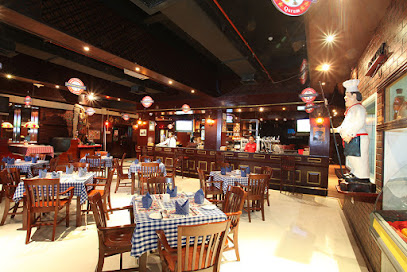
Duke's
Discover the rich flavors of Oman at Duke's, a vibrant gastropub in Muscat offering a blend of traditional and modern culinary delights.
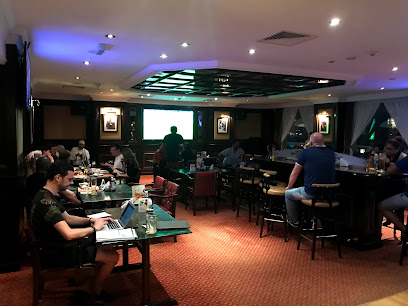
Naana Cafe and Juice Bar مقهى و عصائر نانا
Savor delicious barbecue dishes and refreshing juices at Naana Cafe, a family-friendly culinary haven in Muscat's vibrant CBD area.
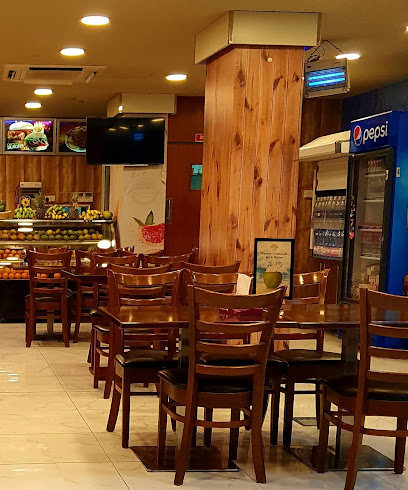
White Nile Hotel فندق النيل الابيض
Discover the lively essence of Muscat at White Nile Hotel, where authentic Omani hospitality meets a vibrant bar experience.
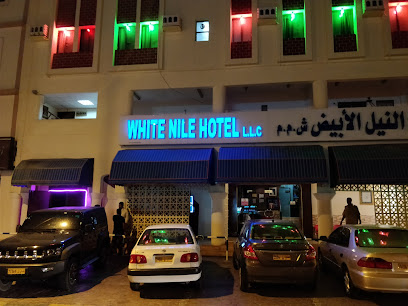
Turbine and Taps
Discover the lively atmosphere and delightful flavors of Turbine and Taps, a premier lounge in Muscat, perfect for unwinding or socializing.
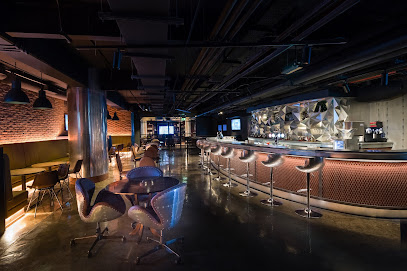
The Lounge
Discover The Lounge in Muscat: a cozy bar offering a delightful selection of drinks and light bites, perfect for unwinding after a day of exploration.
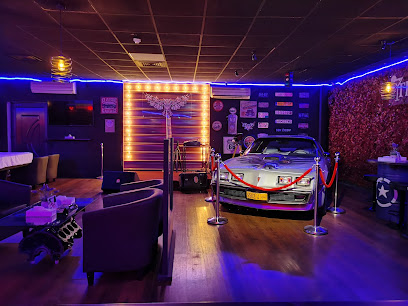
Nirvana
Experience the rich flavors of Oman at Nirvana, a culinary gem in Muscat that blends tradition with modern flair.
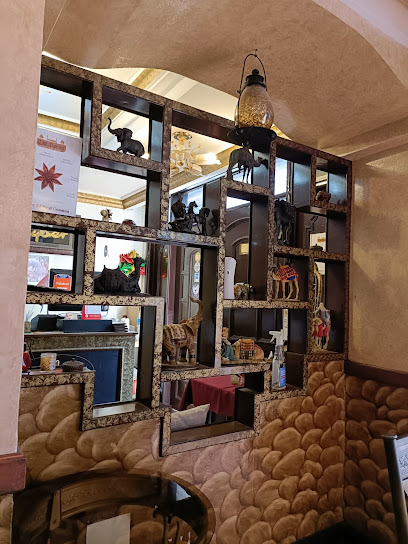
Cleopatra Arabic Bar
Experience the vibrant nightlife of Muscat at Cleopatra Arabic Bar, where traditional charm meets modern comfort in an inviting atmosphere.

Sale of juce
Experience the vibrant flavors of Muscat at Sale of Juice, where fresh fruit juices refresh your senses in a welcoming atmosphere.
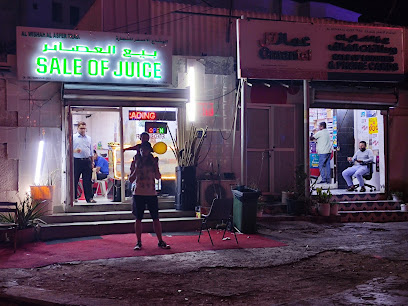
Ismail noufil kazia sugar daddy
Experience the vibrant nightlife of Muscat at Ismail Noufil Kazia, where delicious drinks and lively ambiance await you.

Local Phrases
-
- Helloمرحبا
[Marhaba] - Goodbyeوداعا
[Wada'an] - Yesنعم
[Na'am] - Noلا
[La] - Please/You're welcomeمن فضلك
[Min fadlik] - Thank youشكرا
[Shukran] - Excuse me/Sorryعذرا
[A'adhara] - How are you?كيف حالك؟
[Kayf halak?] - Fine. And you?بخير. وأنت؟
[Bikhayr. Wa'ant?] - Do you speak English?هل تتكلم الإنجليزية؟
[Hal tatakallam al'injlizia?] - I don't understandأنا لا أفهم
[Ana la afham]
- Helloمرحبا
-
- I'd like to see the menu, pleaseأريد أن أرى القائمة، من فضلك
[Aridu an ara alqaimah, min fadlik] - I don't eat meatأنا لا آكل اللحم
[Ana la akl allahm] - Cheers!في صحتك!
[Fi sahtak!] - I would like to pay, pleaseأريد أن أدفع، من فضلك
[Aridu an adfa', min fadlik]
- I'd like to see the menu, pleaseأريد أن أرى القائمة، من فضلك
-
- Help!النجدة!
[Alnajdah!] - Go away!انصرف!
[Insarif!] - Call the Police!اتصل بالشرطة!
[Itsal bilshurtah!] - Call a doctor!اتصل بطبيب!
[Itsal bitabib!] - I'm lostضاعت الطريق
[Da'at altariq] - I'm illأنا مريض
[Ana mareed]
- Help!النجدة!
-
- I'd like to buy...أود أن أشتري...
[Awd an ashtari...] - I'm just lookingأنا فقط أتفرج
[Ana faqat atfarij] - How much is it?كم سعره؟
[Kam siroh?] - That's too expensiveهذا غالي جدا
[Hatha ghali jiddan] - Can you lower the price?هل يمكنك خفض السعر؟
[Hal yumkinuk khafd alsir?]
- I'd like to buy...أود أن أشتري...
-
- What time is it?كم الوقت؟
[Kam alwaqt?] - It's one o'clockالساعة الواحدة
[Alsa'ah alwahidah] - Half past (10)النصف بعد (10)
[Alnisf ba'd (10)] - Morningالصباح
[Alsubah] - Afternoonبعد الظهر
[Ba'd alduhur] - Eveningالمساء
[Almasa'] - Yesterdayأمس
[Ams] - Todayاليوم
[Alyawm] - Tomorrowغدا
[Ghadan] - 1واحد
[Wahid] - 2اثنان
[Ithnan] - 3ثلاثة
[Thalathah] - 4أربعة
[Arbahah] - 5خمسة
[Khamsah] - 6ستة
[Sittah] - 7سبعة
[Sab'ah] - 8ثمانية
[Thamaniah] - 9تسعة
[Tis'ah] - 10عشرة
[Asharah]
- What time is it?كم الوقت؟
-
- Where's a/the...?أين هو/هي...؟
[Ayna huwa/hiya...?] - What's the address?ما هو العنوان؟
[Ma huwa al'unnwan?] - Can you show me (on the map)?هل يمكنك أن تريني (على الخريطة)؟
[Hal yumkinuk 'an tureeni (ala alkhareetah)?] - When's the next (bus)?متى القادم (الحافلة)؟
[Mata alqadim (alhafilah)?] - A ticket (to ....)تذكرة (إلى ....)
[Tazkirah (ila ....)]
- Where's a/the...?أين هو/هي...؟
History of Ruwi
-
Ruwi's history is deeply intertwined with the evolution of Muscat as a trading hub. Its strategic location near the port facilitated commerce and cultural exchange long before the establishment of modern infrastructure. By the 18th century, Ruwi emerged as a vital center for merchants and traders, reflecting the region's significance in maritime trade routes connecting the Arabian Peninsula with East Africa and India.
-
In the late 19th century, Ruwi began to develop into a commercial district, housing numerous shops and businesses. The influx of merchants led to the establishment of banks and commercial enterprises that catered to both local and international needs. This period marked the beginning of Ruwi's transformation into a bustling urban neighborhood, characterized by its diverse population and economic activities.
-
Throughout the 20th century, Ruwi became known for its multicultural environment. As Muscat experienced modernization, Ruwi attracted a variety of communities, including expatriates from India, Pakistan, and East Africa. This cultural diversity is reflected in the neighborhood's culinary offerings, markets, and festivals, representing a blend of Omani traditions and influences from South Asia and beyond.
-
The discovery of oil in Oman during the 1970s accelerated Ruwi's growth and development. Significant investments in infrastructure transformed the neighborhood, with new roads, commercial centers, and residential areas emerging to accommodate the growing population. Ruwi became a focal point for business and commerce, further solidifying its role in Muscat’s economic landscape.
-
Today, Ruwi is a vibrant neighborhood that encompasses both traditional Omani culture and modern urban life. The area features a mix of old souks, mosques, and contemporary buildings. Key landmarks, such as the Sultan Qaboos Grand Mosque nearby, highlight the cultural heritage, while the bustling markets and shopping centers reflect the ongoing economic activity that defines Ruwi in the 21st century.
Ruwi Essentials
-
Ruwi is centrally located in Muscat and is easily accessible from other neighborhoods. From the Muscat International Airport, you can reach Ruwi by taxi or ride-hailing services, which take about 30-40 minutes depending on traffic. Additionally, the bus service from the airport to Ruwi is available, with a journey time of approximately one hour. If traveling from other areas in Muscat, local buses and taxis can conveniently transport you to Ruwi.
-
Ruwi is well-connected by public transport, including local buses that operate frequently throughout the area. Taxis are also readily available and are a convenient option for short trips. Although there are no trains in Ruwi, walking is a pleasant way to explore local shops and cafes. Bicycle rentals are not common, but some hotels may provide bicycles for guests.
-
Ruwi is generally safe for tourists, but like any urban area, it is advisable to remain vigilant. Petty crime, such as pickpocketing, can occur in crowded places. It is best to avoid poorly lit streets at night and to keep valuables secured. Specific areas around the bus stations may be busier and require extra caution, especially during peak hours.
-
In case of emergency, dial 999 for police, fire, or medical assistance in Oman. Hospitals and clinics are available in Ruwi, with the nearest major hospital being the Royal Hospital. It is advisable to have travel insurance that covers health emergencies. For minor health issues, local pharmacies can provide over-the-counter medications.
-
Fashion: Do dress modestly, especially in public places and when visiting mosques. Women should wear long skirts or trousers and cover their shoulders. Men should avoid wearing shorts. Religion: Do respect local customs and traditions, particularly during prayer times. Public Transport: Do give up your seat to the elderly and those in need. Don't eat or drink on public transport. Greetings: Do greet with a handshake, but wait for women to extend their hand first. Eating & Drinking: Do enjoy local cuisine and accept food offerings. Don't refuse food, as it may offend your hosts.
-
To experience Ruwi like a local, visit the vibrant souks for a taste of authentic Omani culture and traditional products. Engage with shopkeepers and ask about local crafts, especially silver and textiles. Try local eateries for traditional Omani dishes, such as shuwa and majboos. Early mornings or late afternoons are perfect for exploring, as the weather is cooler. Don't miss visiting the nearby Sultan Qaboos Grand Mosque, a stunning architectural marvel, but remember to check visiting hours and dress code before going.
Nearby Cities to Ruwi
-
Things To Do in Rustaq
-
Things To Do in Nizwa
-
Things To Do in Bahla
-
Things To Do in Sur
-
Things To Do in Sohar
-
Things To Do in Ibri
-
Things To Do in Fujairah
-
Things To Do in Al Ain
-
Things To Do in Khor Fakkan
-
Things To Do in Dibba Al-Fujairah
-
Things To Do in Ras Al Khaimah
-
Things To Do in Ajman
-
Things To Do in Khasab
-
Things To Do in Sharjah
-
Things To Do in Umm Al Quwain









